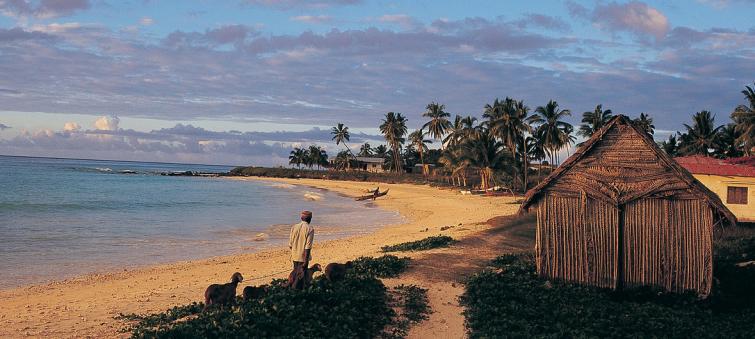
Climate change: ‘A moral, ethical and economic imperative’ to slow global warming say UN leaders, calling for more action
New York, May 10 (IBNS): It is nothing less than a “moral, ethical and economic imperative” to take more action to mitigate the existential threat posed by climate change, said top executives from across the United Nations system on Thursday.
Calling on Member States to take “urgent action to limit global temperature rise to 1.5°C above pre-industrial levels”, the leaders of more than 30 UN agencies and entities, issued a formal, joint appeal for governments everywhere to “step up ambition and take concrete action” ahead of the landmark Climate Action Summit, which has been convened by UN chief António Guterres this September.
The appeal noted that to keep rising temperatures down, countries had to strive to "fulfil their obligations on human rights, including the right to health, the right to food security, the right to development, the rights of indigenous peoples, local communities, migrants, children, persons with disabilities and people in vulnerable situations, as well as gender equality, empowerment of women, intergenerational equity, and decent work and a just transition for all, as stated in the Paris Agreement.”
“With great urgency we call upon Member States to come to New York in September with concrete, realistic plans to enhance their nationally determined contributions by 2020 and in support to the implementation of the Sustainable Development Goals.” As set out by the Intergovernmental Panel on Climate Change (IPCC) Special Report on Global Warming, limiting global warming to 1.5°C “is necessary to prevent irreversible changes. Achieving this goal will require changes on an unprecedented scale at all levels, but it is still possible if we act now”, said the UN system-wide appeal.
The communique issued after consultations during a meeting of the UN Chief Executives Board for Coordination, called on countries to ensure that appropriate “adaptation measures” are taken to protect people, jobs and ecosystems, “particularly people in those regions most vulnerable to the impacts of climate change including those at risk through forced displacement and migration.”
$100 billion per year by 2020, for climate action
On the crucial issue of paying for the ambitious measures which need to be taken, the appeal described climate finance as "critical to deliver action on the necessary scale to address climate change…developed countries must deliver on the goal of mobilizing governments and the private sector to achieve the goal of $100 billion per year by 2020, to support climate action in developing countries and further enhance their efforts on scaling-up financial resources.”
And in the race to innovate, the appeal calls for greater ambition, noting that “the Fourth Industrial Revolution offers tremendous potential for a paradigm shift to low-emission, climate-resilient development pathways.”
The UN system is supporting “the enhancement of capacity of Member States to develop and utilize relevant data and technological innovations, to find solutions for climate and sustainable development challenges and disaster risk reduction and management, including the use of new and emerging technologies, including information and communication technologies, data and tools.
And the UN is going to practice what it is preaching from the Secretariat and beyond. “We will present our system-wide efforts towards reaching climate neutrality in our internal operations by 2020 and enhancing environmental and social sustainability in all UN activities”, says the joint appeal.
Support Our Journalism
We cannot do without you.. your contribution supports unbiased journalism
IBNS is not driven by any ism- not wokeism, not racism, not skewed secularism, not hyper right-wing or left liberal ideals, nor by any hardline religious beliefs or hyper nationalism. We want to serve you good old objective news, as they are. We do not judge or preach. We let people decide for themselves. We only try to present factual and well-sourced news.







